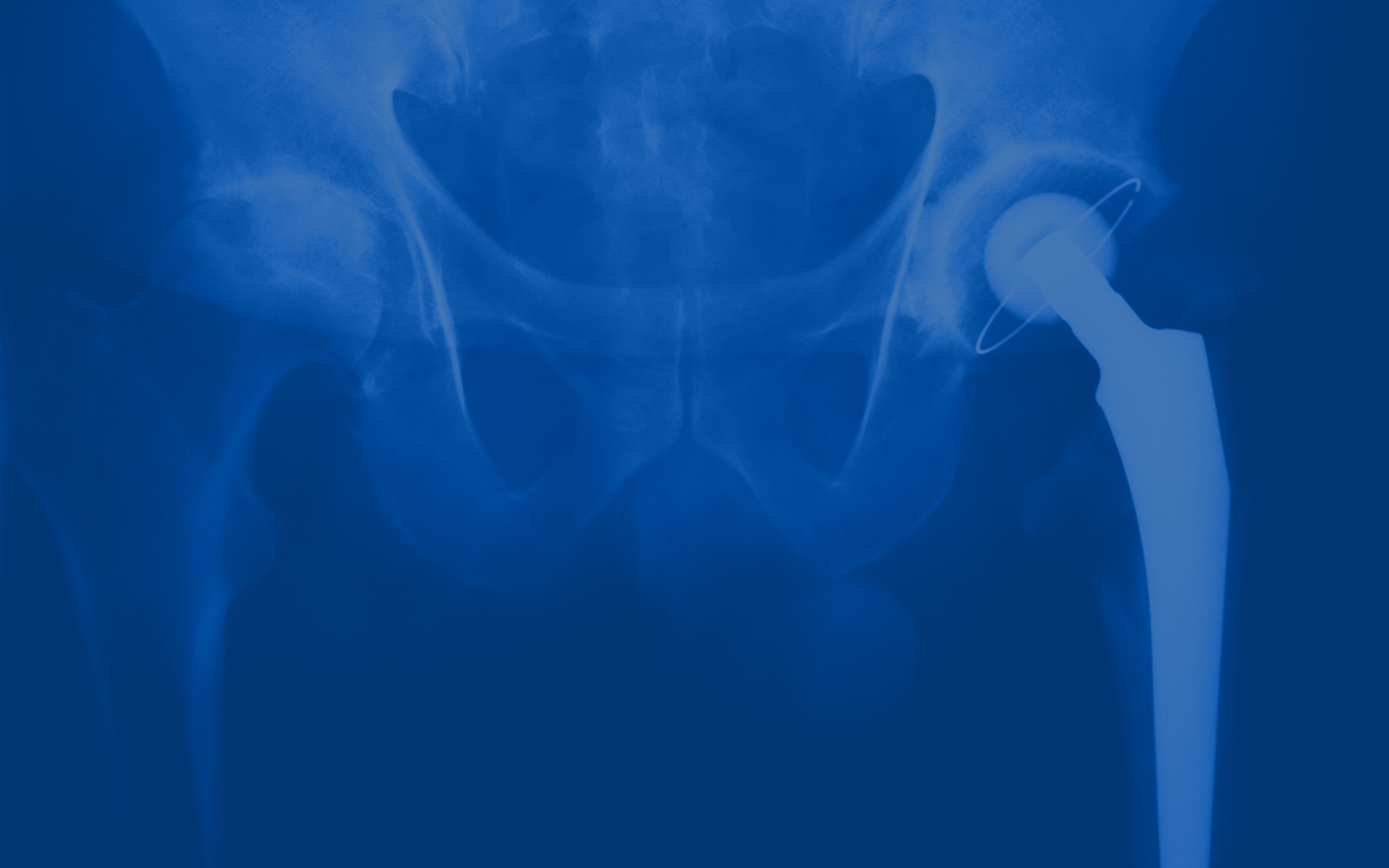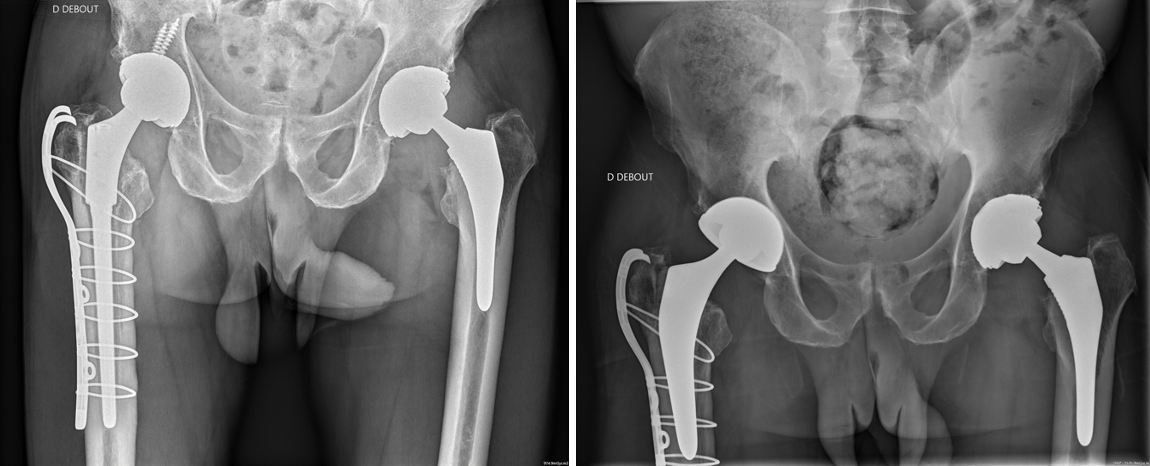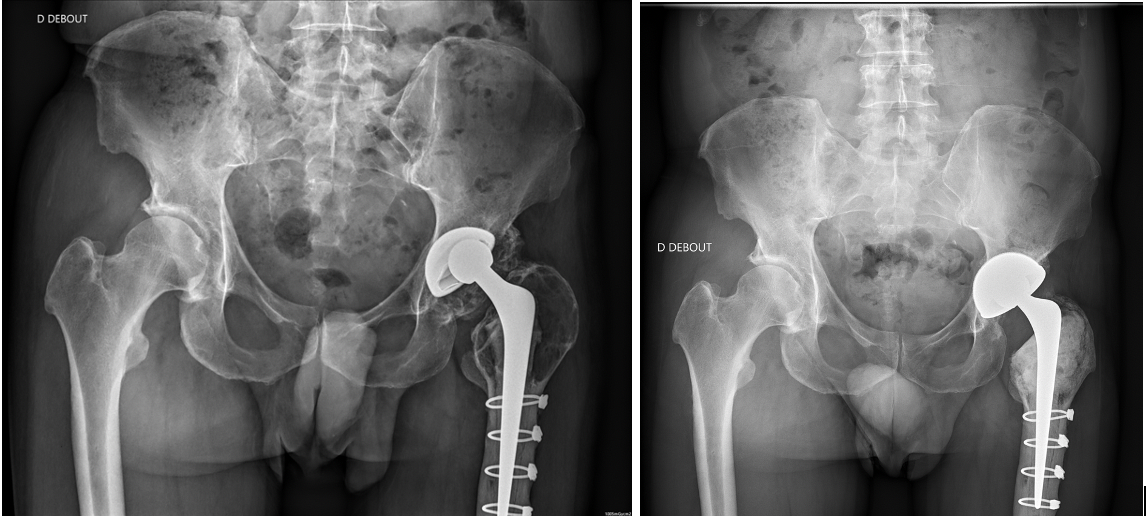
TREATMENT
Revision Total Hip Replacement
DEFINITION
It is a surgery which aims to replace a failing hip replacement. The revision is said to be unipolar or partial revision if only one implant (cup or stem) is changed, and bipolar or complete revision if both implants (cup and stem) are replaced.
It is a longer and complex procedure, sometimes requiring bone graft, and with significant risk of complications (fracture, dislocation, infection, phlebitis, etc.). This justifies:
- That the prosthetic revision surgery be performed in a hyperspecialized/expert center in arthroplasty.
- Regular monitoring of patients with joint replacement, to diagnose and treat complications early, favouring optimal results.
Additional investigations are essential to define the cause of the failure of the hip replacement and to quantify bone loss. This includes recent X-rays and blood tests for inflammatory markers (ESR and CRP). A modern MRI, with metal artifact reduction system (MARS), can sometimes be useful. A joint aspiration is also often necessary to exclude a possible infection.
INDICATION
The reasons for failure of hip replacements include:
- The loosening of an implant
- Significant wear with associated peri-prosthetic osteolysis (bone resorption due to inflammatory processes)
- Recurrent prosthetic instability/dislocation
- A fracture of the peri-prosthetic bone
- Significant residual pain (allergy, tendon irritation, bone demineralization, metallosis, etc.)
- A peri-prosthetic infection
- An implant fracture/breakage (metal or ceramic, rare)
- Etc.
RETURN TO WORK AND SPORTS
The time to return to professional and leisure activities varies from patient to patient, depending on the level of complexity of the surgery performed. Occasionally, restricted weight bearing on the operated limb is required for the first 6 weeks.
The resumption of leisure activities such as swimming or cycling is generally authorized quickly after 3 months. The resumption of sports with impact, pivots and/or at risk of falling will usually be deferred beyond the 6th month.

Wear of the plastic insert causing severe osteolysis at the level of the proximal femur (left image) – Bipolar revision with bone grafting of the greater trochanter (right image)

Loosening of the femoral stem (left image) – Bipolar revision (right image)

Avant et après votre intervention
Choix de l’Anesthésie et Contrôle de la douleur post-opératoire

Choix techniques
Assistance technologique pour la pose d’une prothèse

